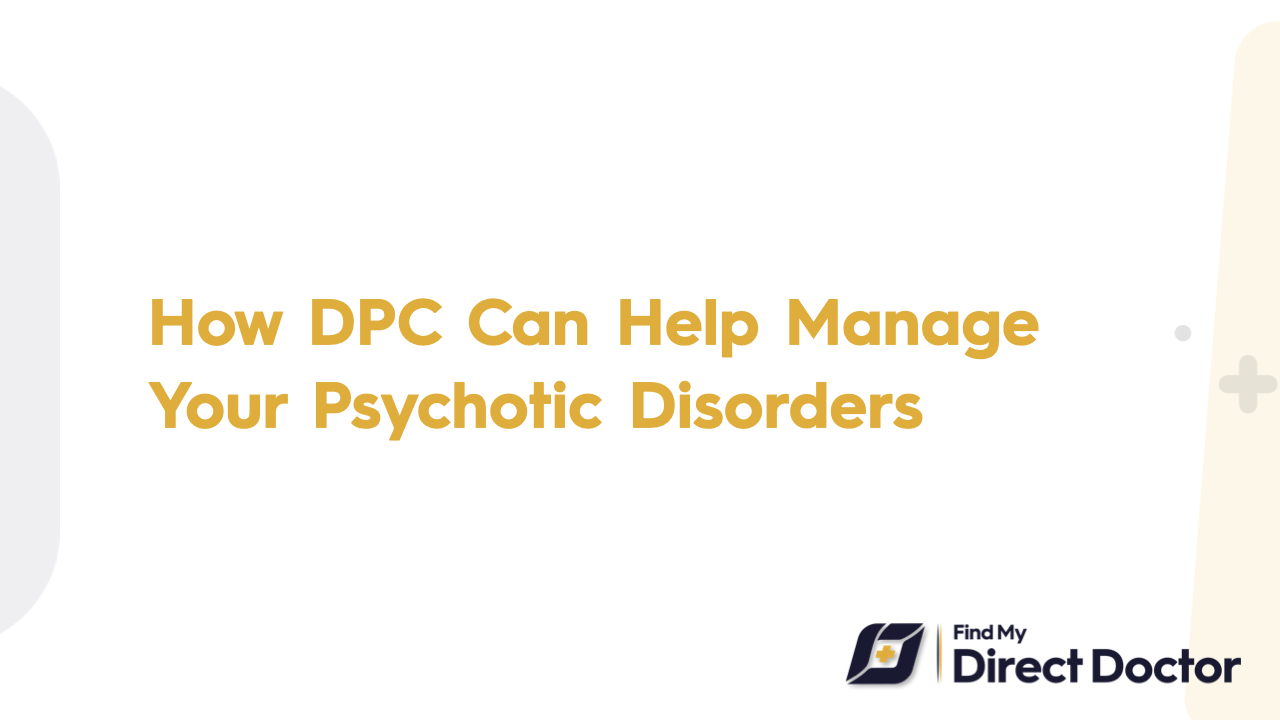



Mental illnesses known as psychotic disorders impair a person's capacity to discriminate between reality and their own perceptions. Common symptoms include hallucinations, which entail seeing, hearing, or feeling things that aren't there, and delusions, in which a person has irrational beliefs that aren't grounded in reality. Disorganized thinking, trouble speaking, and notable behavioral changes are possible additional signs. These conditions can significantly impair a person's capacity to carry out daily tasks, which can have an effect on their relationships, employment, and general well-being. For psychotic disorders to be well managed, professional treatment is frequently necessary.

By giving patients continuous, reliable care, Direct Primary Care (DPC) offers a customized approach to treating mental diseases. DPC allows patients with psychotic disorders to see their doctor frequently and communicate directly with them. Early symptom detection and treatment plan modifications, including medication management and therapy, are made possible by this methodology. In addition to addressing the physical components of psychosis, DPC promotes a comprehensive approach to care, providing emotional support and coordinating with other medical professionals as necessary.
DPC gives people with psychotic diseases unrestricted access to medical specialists, which has major advantages. Patients who use DPC spend more time with their provider, which guarantees that all of their issues are taken care of and that their treatment plan is constantly adjusted to meet their changing needs. This accessibility lowers the need for emergency interventions, promotes proactive symptom monitoring, and enhances drug adherence. Additionally, DPC helps patients and providers build a supportive relationship, which facilitates a better comprehension of the difficulties faced by people with psychotic disorders.
The treatment of psychotic diseases in a DPC context is tailored to the individual requirements of each patient. Healthcare professionals take the time to learn about the patient's medical history, particular situation, and type of symptoms. A treatment plan that may involve medication, therapy, lifestyle changes, and, if required, cooperation with specialists is made possible by this individualized care. DPC providers can assist patients in improving their condition management and preserving their general quality of life by making sure that therapy is individualized.
Previous Post
Next Post